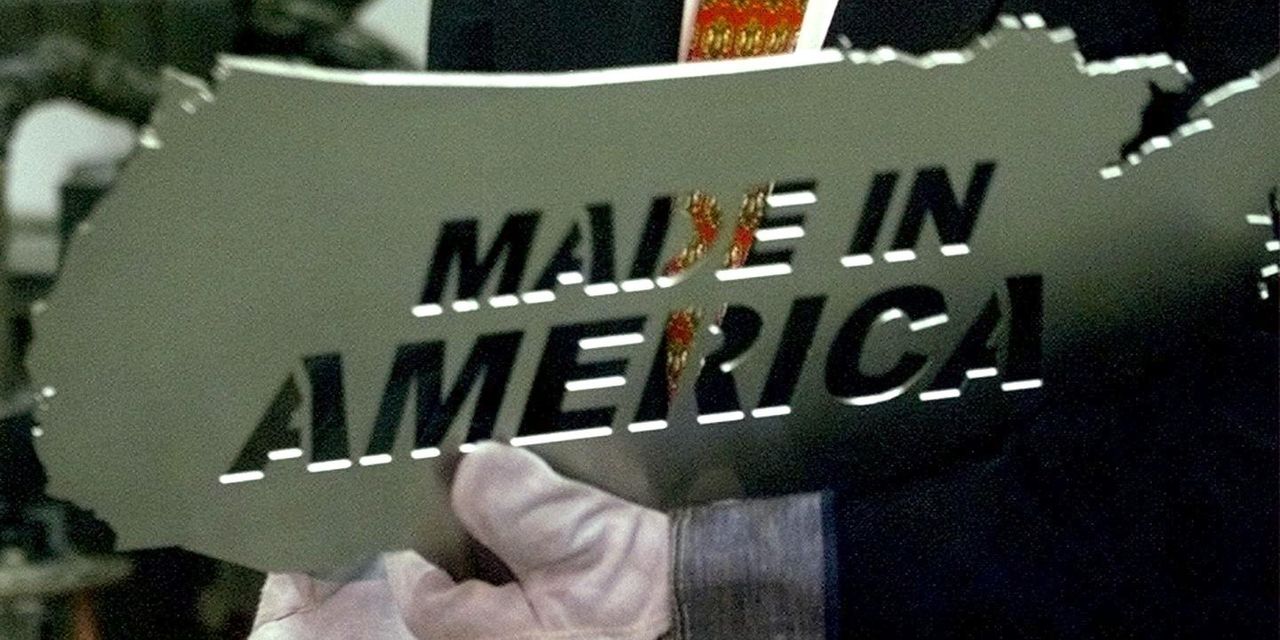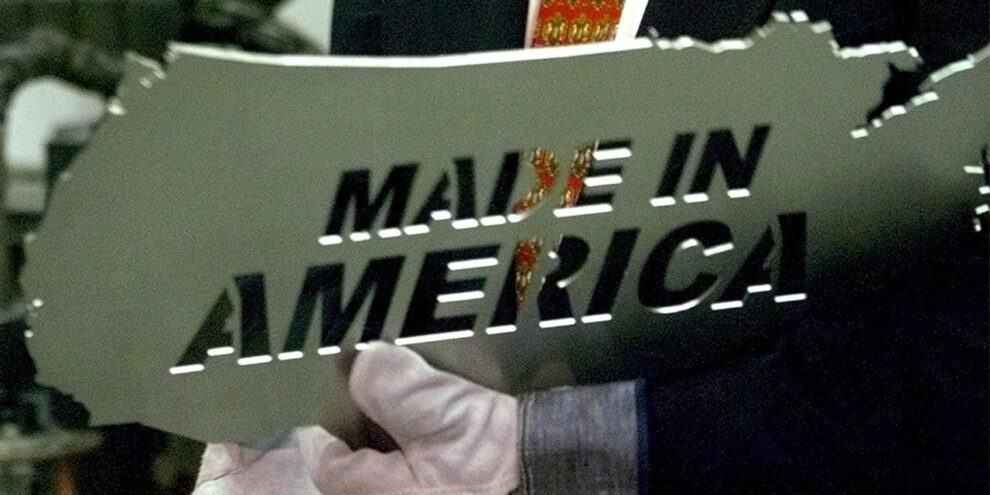
President Joe Biden is making America’s industrial base a top priority; since taking the oath of office he has issued a Buy American Executive Order and put out his plan to increase the use of the Defense Production Act.
While the goal of stronger American manufacturing is worth pursuing, a Buy American approach is unfortunately counterproductive. The Biden administration instead should focus on reshoring industrial capacity — with a little help from our friends — to bolster our supply chains in areas of greatest need.
Over the past 50 years, U.S. manufacturing capabilities have declined significantly as the country transitioned into an information-age economy while manufacturing shifted offshore to lower-cost labor markets such as China. While the global economic system has created great efficiencies, it has also led to dangerous industrial base weaknesses.
For example, U.S. dependence on Chinese firms for personal protective equipment (PPE) and pharmaceutical production came starkly into focus in the early weeks of the COVID-19 pandemic. The 2017-2018 White House-led review of the defense industrial base also identified significant dependencies on Chinese producers for rare-earth processing, microelectronics, small unmanned aerial vehicles and specialty chemicals. These cases demonstrate that the U.S. does not have enough domestic manufacturing capacity in critical areas.
Buy American does not solve these problems. For example, during last year’s negotiations over the 2021 National Defense Authorization Act, a Buy American provision that narrowly failed would have required 100% of Defense Dept. major acquisition programs to be manufactured and sourced in the U.S. by 2026.
This blanket approach is not helpful. Defense is already one of the country’s strongest manufacturing sectors thanks to existing laws and regulations; mandating additional restrictions would have only marginal benefits and, more importantly, would not address the real challenges in the industrial base. Moreover, why would the Biden administration want to pursue additional Buy American legislation or regulation, particularly when one of its highest priorities is to strengthen ties with allies?
Biden would be better served focusing on reshoring manufacturing capabilities now based in adversarial countries, principally China. For example, while more than $40 billion was obligated towards pandemic response by September 2020, there is definitely much more that can be done to secure our public health supply chain from Chinese vulnerabilities.
Next, the Biden administration needs to clearly articulate its industrial base priorities. For COVID-19 and future pandemic response, the $10 billion targeted for Defense Production Act investment in the administration’s COVID stimulus package — an historic number — shows their intent to invest. For defense, the Biden team should focus its efforts on specific areas, such as microelectronics and artificial intelligence, that pose the greatest risk to national security.
While the Defense Production Act is a vital tool, it is important to recognize that it is not the only tool in addressing industrial base shortfalls. Programs such as Industrial Base Analysis and Sustainment (IBAS), Manufacturing Technology, public-private partnerships such as the Manufacturing Innovation Institutes (MII), and the National Defense Stockpile are all built to address both defense and pandemic preparedness challenges. IBAS, for example, directs one of the rare earth processing projects started in 2020 and a new MII launched last year advances sustainable and reliable bio-industrial manufacturing technologies
Finally, the Biden administration can reshore with a little help from our friends. Myriad efforts such as the National Technology Industrial Base (NTIB), reciprocal defense procurement memorandums of understanding, Security of Supply Agreements, DPA Title III, and even the U.S.-Mexico-Canada Agreement all present great opportunities for leveraging the respective industrial strengths of America’s close partners and allies. These have not had the impact that they could, but the Biden administration can change that. The NTIB, for example, has made the U.S., Australia, Canada, and the United Kingdom one industrial base. The U.S. can start including NTIB clauses in DPA, IBAS, and other contract opportunities so companies based in allied countries can work to strengthen America’s industrial base.
Moving forward, these types of focused reshoring efforts will help to strengthen U.S. manufacturing capabilities where they are needed most. Rather than a misguided Buy American approach, reshoring will create jobs, strengthen America’s industrial base and bolster our international partnerships, which is truly a win-win.
Jerry McGinn is executive director of the Center for Government Contracting, School of Business, George Mason University.
Read more: Here’s one simple thing Biden can do with a stroke of a pen to rebuild America’s shattered economy
Also read: Shortage in chips puts U.S. national security at risk











Add Comment